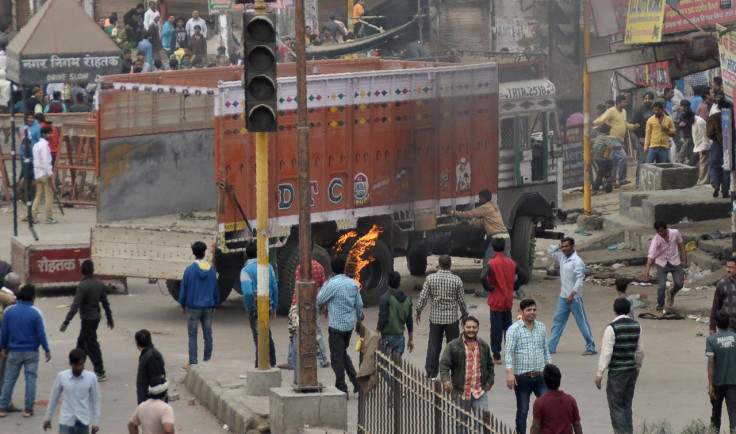India Sends Over 3,000 Troops To Control Protests In Northern State Of Haryana

India sent more than 3,000 troops Saturday to the northern state of Haryana’s Rohtak town, about 150 miles south of the capital Chandigarh, after protesters belonging to a particular community demanding quotas in government jobs and colleges turned violent.
Curfews placed in Rohtak and another town called Bhiwani Friday, were extended to the nearby Jind district after demonstrators set fire to city buses, shops, hotels and a mall, and also torched a railway station Saturday.
Sporadic incidents of arson and violence were reported at several places despite authorities issuing shoot-at-sight orders in Rohtak and Bhiwani. The government has also stopped internet and mobile-texting services in six districts in Haryana, according to local media reports.
The protests turned violent Friday as one person was killed near Maharshi Dayanand University in Rohtak — the epicenter of the protest. Rail and road traffic from the national capital New Delhi to Haryana has been blocked and 37 trains have been reportedly canceled as agitating protesters also squatted on the rail tracks in Gurgaon district, about 20 miles from New Delhi, Saturday.
The mob also attacked the offices and properties of police officials and set the house of the state’s Finance Minister Abhimanyu Singh on fire.
"We are trying to stop the mob," a police chief told the media Saturday, adding that three "companies" of paramilitary forces were already stationed and 30 more would be deployed in the state soon.
The "Jat" community in the state is calling for legislation that would classify it as Other Backward Class (OBC), a collective term used by the Indian government to describe “socially and educationally backward classes of people." The community's leaders insist that they will not end the protests until their demand for quotas was met.
In March 2015, the country’s top court quashed a move by the previous ruling party to include Jats in the list of OBCs citing a government study that said “Jats were not socially backward,” and not “educationally backward.”
© Copyright IBTimes 2024. All rights reserved.





















